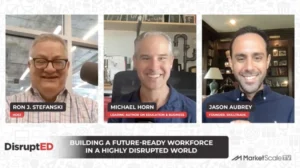Why A Robot May Soon Be Cooking Your Food, And Delivering it Too
The restaurant industry is evolving with technology. Several new advancements have become commonplace in restaurants, affecting everything from the way food is prepared to the customer experience.
Modern Point-of-Sale Equipment
Many restaurants are making the switch to higher tech options for ordering food and paying for it. Some opt for iPads with popular point-of-sale systems like TouchBistro, Revel, or Square. Mobile apps allow customers to pay online and on the go.
Perhaps most common are tablets on restaurant tables. Major restaurant chains like Chili’s, Applebee’s, and Olive Garden have led the way with this technology. More than 50% of guests who interact with table tablets use them to complete their transactions, reacting favorably to the convenience of the solution.
Robotic Chef Solutions
Futuristic as it may sound, some restaurants are using robots as chefs, food dispensers, and even wait staff. Spyce, for example, is a Boston restaurant using robots to complete part of the cooking process. These robots increase efficiency and ensure food safety with their precise calibrations.
In China, robot waiters are in testing in some restaurants. Since the robots interact with customers who haven’t been trained to use them (like the staff of Spyce have been,) the technology is still very much in development.
Optimization Options to Streamline Service
Sixty-three percent of restaurant owners implement technological solutions to increase efficiency. Examples of such technologies include:
- Software allowing for customers to make and update reservations online
- Digital menus that managers can update as needed in real-time
- Bin management technology that automates hot food holding times
- Kitchen automation software optimizing food prep ordering and updating order status
Increasing the Appetite for Restaurant Technology
As chain restaurants and local restaurants take advantage of technology’s benefits, customers are beginning to have different expectations for the food industry. As a result, even fast food restaurants like McDonald’s are going to be expected to adapt technologically to better satisfy the new consumer appetite for convenience, efficiency, and high-tech options.








